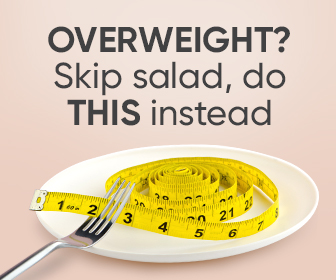In the modern era of food and work, maintaining a healthy weight and diet has become increasingly challenging. Losing weight, in particular, can feel like an uphill battle.
If you’ve experienced failed attempts at weight loss in the past, you may have come to the conclusion that diets simply don’t work for you.
While it’s true that traditional diets often fall short, especially in the long run, there are numerous small yet effective strategies to avoid common pitfalls associated with dieting.
Achieving lasting success in weight loss and cultivating a healthier relationship with food is a dream shared by many individuals.
The concept of weight management is essentially a calculated balancing act. The equation is straightforward:
if you consume more calories than you burn, you will gain weight, while eating fewer calories than your body expends leads to weight loss.
Given that one pound of fat is equivalent to approximately 3,500 calories, reducing your daily caloric intake by 500 calories can result in a loss of about one pound per week (500 calories x 7 days = 3,500 calories).
This may not seem overly difficult, so why do people often struggle with weight loss?
Often, we unintentionally make weight loss more challenging than necessary.
Extreme diets that leave us feeling deprived and famished, as well as unhealthy lifestyle choices, can undermine our efforts. Emotional eating habits further impede our progress.
However, where there is a will, there is a way! It is entirely possible to shed unwanted pounds without succumbing to despondency.
Developing new eating habits is a daily process that involves making smart choices aligned with our preferences and inclinations, ultimately leaving us feeling satisfied.
By adopting these habits, we can triumph over the battle of the bulge.
Here are some tips for healthy dieting and weight loss:
- Avoid relying on pills or schemes promising quick weight loss. While you may initially shed pounds, the inability to sustain these methods will leave you feeling deprived and demotivated. Such diets often prevent you from enjoying meals with friends and family. Moreover, they can drain your finances faster than they help you shed weight.
- Put an end to emotional eating. Many individuals resort to overeating as a response to certain emotional triggers. It’s crucial to avoid turning to food when feeling low, angry, or stressed. Break the habit of mindlessly snacking while watching TV shows or sports.
- Practice mindful eating. Pay close attention to what you consume. Avoid distractions while eating, such as watching TV, driving, or engaging in conversation. When you sit down for a meal, focus solely on the food in front of you.
- Increase your intake of fruits, vegetables, and fiber-rich foods. Incorporate more of these items into your diet. Fruits, vegetables, beans, and high-fiber whole grains are not only voluminous but also take longer to digest, providing a greater sense of fullness.
- Establish a structured eating schedule. Take control of your eating routine. Research suggests that consuming a larger portion of your daily calories at breakfast and fewer calories at dinner can facilitate weight loss. Plan your meals accordingly and embrace a healthier, more active lifestyle.
By following these guidelines and making gradual adjustments to your dietary habits, you can embark on a journey towards sustainable weight loss and improved well-being.
Remember, small changes can yield significant results, and with perseverance, you can achieve a healthy and fulfilling life.













No Comments